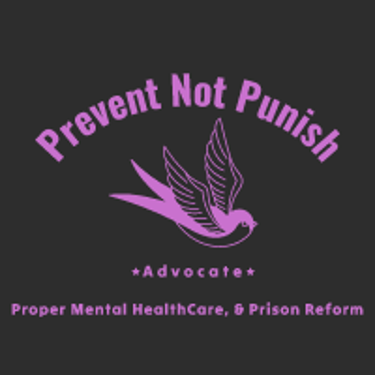BoRdErLiNe PeRsOnAliTy DiSoRdEr
An overview of Bpd, and the differences of it and bipolar disorder.
Written By: Natasha BYTS
2/28/20256 min read


Borderline Personality Disorder (BPD)
A personality disorder is described as a type of mental disorder in which someone has a rigid and unhealthy pattern of thinking, functioning and behaving.
A person with a personality disorder looks at the world in a distinctly different way than you do. A way that causes significant problems and limitations in their relationships, their social activities, and their work or studies.
There are 10 personality disorders which are divided into 3 clusters A, B, and C according to the Diagnostic Statistical Manual of Mental Disorders, 5th Edition (DSM-V).
Borderline Personality Disorder (BPD) is in the B cluster along with Narcissistic (NPD), Antisocial (APD), and Histrionic (HPD). I will only be discussing borderline in this blog.
According to the American Psychiatric Association, borderline personality disorder (BPD) is typically characterized by a pattern of instability in various facets of life. This may include an unstable or poorly developed self-image, rapidly changing personal goals, intense but unstable relationships characterized by efforts to avoid abandonment, and an impaired ability to recognize the needs and feelings of others.
Individuals living with borderline personality disorder can experience a range of other symptoms that can vary in their intensity. Additionally, they may live with comorbid mental health conditions, like post-traumatic stress disorder, eating disorders, or depression.
The DSM-5 outlines nine key criteria for BPD, and a diagnosis typically requires that an individual exhibits at least five of these symptoms:
Frantic Efforts to Avoid Abandonment: This includes both real and imagined scenarios of abandonment.
Unstable and Intense Relationships: Alternating between extremes of idealization and devaluation.
Identity Disturbance: Markedly and
persistently unstable self-image or sense of self.
Impulsivity in At Least Two Areas: These areas are potentially self-damaging, such as spending, sex, substance abuse, reckless driving, and binge eating.
Recurrent Suicidal Behavior or Self-Harming Behavior: Such as threats or gestures, or self-mutilation.
Affective Instability: Due to a marked reactivity of mood.
Chronic Feelings of Emptiness.
Inappropriate, Intense Anger or Difficulty Controlling Anger: Frequent displays of temper, constant anger, or physical fights.
Transient, Stress-Related Paranoid Ideation or Severe Dissociative Symptoms.
Borderline personality disorder (BPD) is characterized as having wild mood swings, black and white thinking, impulsiveness, hate or love a person, easily triggered by real or imagined abandonment and has intense and unmanageable relationships.
A person with borderline can increase conflict instead of reducing it or resolving it. We have shame, insecurities and feelings of worthlessness.
We (I am diagnosed with BPD) can split on people and situations into all or nothing, or black and white extremes. Always and never. No gray areas.
Sometimes we will build a person up on pedestal then discard and fault that same person in a blink of an eye.
Our emotions are often way out of proportion to the situation or issue. Some of us are unable to control our own emotions and later regret how we expressed them.
Some use emotional manipulation to hurt others.
Us folks with BPD can have extreme behaviors too. Throwing things, saying the meanest thing possible, over-emotional reactions. Trying to control others and situations. Hiding other’s personal items. Physically preventing someone from leaving a conversation. Threatening retribution when someone doesn’t agree. Becoming violent.
Most behaviors are subconscious. They are designed to shield the person with BPD from intense emotional pain, not to hurt anyone else.
Some of us people with BPD look to others to manage our feelings for us.
An anonymous woman with BPD said, “Someone with BPD wants others to provide them with things they find difficult to supply for themselves such as self-love, stable moods and a sense of identity. Most of all they are searching for a nurturing caregiver whose never-ending love and compassion fill the black hole of emptiness and despair inside them. Wanting something I couldn’t find. A bottomless pit of need.” -Stop Walking On Eggshells by Paul Mason.
Romantic relationships can trigger an episode of splitting, because that one person means so much.
Safety.
If needed, they are the one person who can take care of all of this need.
We have faith you will fill that deep empty hole for us.
We can become over immersed in the relationship so much that we rely on the other person to meet our emotional needs.
Us folks with BPD can turn happiness to anger to rage to guilt to sadness to despair
. Sometimes we can feel isolated, anxious, and terrified at the thought of being alone.
We may experience push/pull, in fear of being smothered. Break-up just to beg to come back after a few days and repeat the pattern. Idealization/devaluation.
“He’s back, I didn’t fuck it up for good, he actually does care.”
A cycle.
Or leave before left.
(Most of the time I don’t act or look like I have a disorder. I have an excellent intellectual understanding of BPD. My feelings don’t always reflect reality. My intellectual understanding doesn’t stop me from being emotional all over again a few hours or even minutes later.)
People with BPD can have impulsive & compulsive behaviors, commit suicide or self-harm (cutting themselves), reckless driving, uncontrollable rage, impulse aggression, an inability to express any anger at all.
Failure to think through the potential consequences of an action.
Our anger and accusations aren’t always about others. We can split on ourselves. Victim or hero…. Capable or incompetent.
Dissociation- “What the fuck happened to me?” The stress is so strong that it makes us feel unreal, strange, numb or detached.
In extreme cases people with borderline may lose all contact with reality for a brief period of time. We may or may not remember what happened while we were “gone,” in a different reality.
Which is what happened to me on that tragic day of the accident. I describe it as a scene from the movie Get Out.
We also feel all emotions intensely. More intensely than the average person.
The brain of a person with BPD is different from most peoples. Our structure and chemistry are irregular and turn our emotion centers to full strength.
Making it hard to regulate emotions properly. "Long after most people would have cooled down the person with BPD still has those emotions boiling over."
The fear of being alone leaves us without a sense of who we are or causes us to feel like we do not exist.
People with borderline usually don’t know how to express our emptiness so we may act like different people depending on who we are with.
We want someone to never make us feel unloved or alone, however, we tend to push those people away. And when we love we love full-heartedly as all of our emotion are intensified.
We act based on our emotional reality all the time. Logic is usually missing.
We have problems setting boundaries and maintaining personal limits.
We have control issues. The need to control others because we feel so out of control ourselves.
We may call or text a lot to ensure you’re still there and you still love us.
Many with borderline personality disorder are highly intellectual, creative, and artistic (I'd like to think I am lol).
It can confuse people that we act so self-assured in one situation but fall to pieces for seemingly no reason in another situation.
We can lack trust in others because we don’t believe we deserve love.
We can be self-absorbed.
Borderline Personality Disorder (BPD) versus Bipolar Disorder (BD)
Borderline is different from bipolar disorder because the mood shifts in people with borderline within minutes whereas bipolar moods are slower, as in weeks, months...
Bipolar has two moods, depressed or manic moods, where borderline has intense emotions with all emotions.
BPD moods shift by situation or environment. The depression and mania cycles in bipolar aren’t usually just affected by a situation or what’s going on in our lives. (I have bipolar and BPD).
BPD doesn’t have specific meds to treat the core but does have meds to help treat symptoms but
Bipolar has meds specifically for the chemical imbalance itself not just treating the symptoms.
BPD Treatments
The cause of borderline personality disorder is unknown, could be caused by childhood trauma or neglect, could be genetic, could be environmental or all three.
There are medications that treat symptoms and it’s best to go to therapy.
Dialectal Behavioral Therapy (DBT) is the most common therapy. Its focus is mindfulness. It can include meditation. It's also about being in the moment and observing what is happening around you, and your emotions without being consumed by them.
This must be on a continuous basis, and journaling is a part of it.
I take medications for both the bipolar symptoms and the borderline symptoms. I take Lamictal, Seroquel, Abilify, and Effexor ER, all daily.
I am in psychotherapy, and I practice DBT skills.
My symptoms have gotten better over the years, but I still have a long way to go.
There have been people with borderline who no longer meet the criteria of the DSM-V to be diagnosed with borderline anymore.
I normally am emotionally stable until I get into a romantic relationship or until I am overloaded with stress.
My brain is like a computer, once it’s overloaded it malfunctions.
I tend to give my all to that one person and expect the same in return. This is unrealistic and one of the things I am working on in therapy.
Along with finding healthier partners.
I had to learn ways to handle stress properly as when I have too many stressors I dissociate.
I’m not going to lie it is torture having BPD but it’s even harder having bipolar too (along with all the other disorders I have including post-traumatic stress disorder).
They are both serious mental health disorders that need treatment.
Treatment can be long-term or even permanent and that’s okay.
I will never give up.
Neither should you!
If you have any questions, I’ll be happy to answer them.
Email me at info@preventnotpunish.com
~Natasha BYTS
Sources: Mayoclinic.com; Stop Walking on Egg Shells by Paul Mason; The DSM-V; American Psychiatric Association
